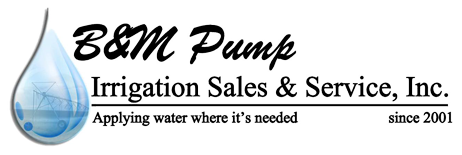How Does Irrigation Scheduling Work?
How Does Irrigation Scheduling Work?
Proper irrigation scheduling is crucial for the success of any agricultural operation. It ensures that crops receive the right amount of water at the right time, optimizing growth and yield while minimizing water waste. In this blog post, we will delve into the details of how irrigation scheduling works and the factors that need to be considered for effective water management.
1. Understanding Crop Water Requirement:
The first step in irrigation scheduling is determining the water needs of the crops being grown. Different crops have varying water requirements depending on factors such as stage of growth, weather conditions, soil type, and root depth. To accurately assess the water demand, farmers can rely on tools such as evapotranspiration (ET) rates, which measure the amount of water lost through evaporation and plant transpiration.
2. Evaluating Soil Moisture:
Monitoring soil moisture levels is essential for efficient irrigation scheduling. It allows farmers to gauge when and how much water to apply based on the soil’s ability to retain moisture. Several methods can be used for soil moisture measurement, including tensiometers, soil moisture sensors, and visual assessments. By understanding the water-holding capacity of the soil, farmers can avoid over- or under-irrigation, which can lead to crop stress or inefficient water usage.
3. Weather Monitoring:
Weather conditions play a significant role in irrigation scheduling. Rainfall, temperature, wind speed, and humidity impact both crop water requirements and the effectiveness of irrigation. By monitoring weather forecasts and using local weather stations, farmers can adjust their irrigation schedule accordingly. For example, if rain is predicted, farmers can delay irrigation to take advantage of the natural water supply.
4. Irrigation Systems:
The type of irrigation system employed also influences scheduling decisions. There are various irrigation methods, including drip irrigation, sprinklers, and flood irrigation. Each system has its own benefits and challenges, and farmers must consider factors such as water availability, crop type, and cost-effectiveness when selecting an irrigation method. Additionally, efficient irrigation technologies, such as moisture sensors and computerized controllers, can automate the scheduling process, making it more accurate and convenient.
5. Calculating Irrigation Runoff and Efficiency:
Another crucial aspect of irrigation scheduling is assessing the efficiency of water delivery and minimizing runoff. Runoff occurs when excessive irrigation water is not absorbed by the soil and is wasted. By measuring the amount of runoff and evaluating irrigation efficiency through tools like catch cans or flow meters, farmers can optimize water usage and reduce water loss.
6. Crop Stage and Growth Patterns:
Understanding the growth stages of crops is vital for effective irrigation scheduling. Different stages, such as germination, vegetative growth, flowering, and fruit development, require varying amounts of water. By tailoring the irrigation schedule to match these stages, farmers can ensure optimal crop health and maximize yield. For example, during the flowering stage, crops may require more water to support pollination and fruit set.
7. Seasonal Adjustments:
Irrigation scheduling varies throughout the growing season. During initial planting and establishment, crops might need more frequent irrigation to foster root growth. As crops mature, the frequency and amount of water applied may change. Adjusting the irrigation schedule with respect to the season and the crop’s changing water demands is essential for efficient water utilization.
Conclusion:
Effective irrigation scheduling involves understanding crop water requirements, monitoring soil moisture, considering weather conditions, selecting appropriate irrigation systems, and adapting to crop growth stages. By implementing these practices, farmers can optimize water use, reduce waste, and improve crop productivity. Employing advanced technologies and irrigation management tools can further enhance scheduling accuracy and ease the burden on farmers. Ultimately, irrigation scheduling is a crucial aspect of sustainable agriculture, ensuring that crops receive the necessary water while minimizing the environmental impact.
Got Questions? Let Us Help!
Welcome to B&M Pump Irrigation Sales & Service, Inc.! We are your professional irrigation specialist! Our typical services include complete pump service, water well service, system design, and pivot systems. Here at B&M Pump Irrigation Sales & Service, Inc., we deliver personal service and reliability to our customers in Texas, Oklahoma, New Mexico, and Arizona. No matter where you are in the southwest, B&M Pump Irrigation Sales & Service, Inc., is a name you can trust. We strive to educate owners and operators on making pumps and motors last longer and work more efficiently. We sell good quality products at a fair price and stand behind the products we sell. Give us a call today to speak with one of our service experts today!
Categorised in: Irrigation
